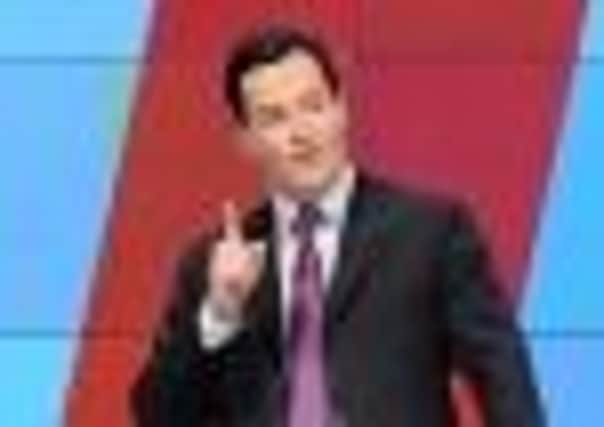Pressure grows for fuel price rise to be ditched


Mr Osborne will unveil credit easing schemes to release up to £40 billion in loans to small firms when he delivers his autumn statement.
But motorists already enduring sky-high petrol and diesel prices are poised for a petrol pump rise of about 3p a litre in January.
Advertisement
Hide AdAdvertisement
Hide AdThe increase has met vociferous opposition from campaign groups, as well as some Tory MPs who have argued in the Commons for help for beleaguered road users. Speculation is building that Mr Osborne may now be set for a rethink.
SNP Treasury spokesman Stuart Hosie warned that prices need to be brought under control. “A freeze in fuel duty is the minimum action the Chancellor must take,” he said.
“Record fuel prices are hindering recovery, and we need a permanent stabilisation measure to bring prices under control.
“With record North Sea oil and gas revenues flowing to the Treasury this year, we need to see some of that money used to bring fuel prices down – and to keep them stable – through a fuel duty regulator.
“If Westminster will not act, the powers should be passed to the Scottish Parliament so that it can. If Scotland had control of fuel duty, the SNP government would introduce a fuel duty regulator to lower prices now.”
There is already a precedent for a postponement in the fuel-duty rise. The January 2012 increase had been due in April this year but was put back. The April 2012 rise has already been put back to August 2012.
A recent debate in the Commons showed the government the extent of feeling on the issue.
Mr Osborne might consider that the high price of petrol and diesel is helping to fill Treasury coffers enough to allow for a delay to a further rise in costs for the put-upon motorist.
Advertisement
Hide AdAdvertisement
Hide AdScottish islanders will be given a 5p fuel discount from the beginning of next March, the UK government has confirmed.
The date was set after ministers received clearance from the EU to operate a rural fuel rebate pilot scheme for communitiers off the coast of Scotland and in the Isles of Scilly.
Meanwhile, Mr Osborne will announce that the government is ready to underwrite banks’ borrowing so they can pass on cheaper loans to firms turning over less than £50 million. A sum of £20bn will be involved initially, but this could be doubled.
The Chancellor is proposing three schemes in an attempt to boost economic growth.
The first would see the government provide a guarantee for banks to borrow on the financial markets.
The Chancellor will also propose that the government takes a stake in an investment fund with private-sector investors to provide a source of credit or loans to medium-sized companies.
A third scheme would offer an alternative to traditional bank loans by encouraging firms to sell bonds – company IOUs – to the market.
“The government will underwrite the loans the banks make to small businesses in order to cut the interest rates the small businesses pay,” Mr Osborne said yesterday.
Advertisement
Hide AdAdvertisement
Hide Ad“We are making available £20bn for the National Loan Guarantee Scheme; however, it sits within an envelope that could be as large as £40bn.”
Mr Osborne will also unveil a boost to infrastructure spending, including £600m for new schools over three years as part of a multi-billion-pound programme. The government will switch some current spending to capital projects.
A deal with pension funds and insurance companies is also expected to be unveiled which would to put investment into Britain’s infrastructure in return for a stream of income from road tolls and other charges, potentially raising billions of pounds.
The Chancellor came into office last year promising that rapid cuts in public spending and increases in taxes like VAT would wipe out the deficit and put Britain back on the road to economic health.
He set himself the “fiscal mandate” of eliminating the structural deficit by 2015-16, and said he would in fact do so a year early – leaving himself ample room for vote-catching tax cuts ahead of the 2015 general election. But anaemic growth and lengthening dole queues have put a big question mark over his strategy.